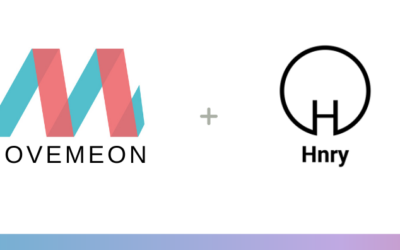A signal of exciting and busy times for any business is developing large-scale projects and/or expanding the current team. Naturally, this is when smart, well-thought-out and strategic decision-making is crucial in supporting this change.
Identifying the gaps in your Hiring Plan centres more than ever not just on securing the right skills, but also finding a suitable fit for the team, the firm, and the role/project. This leaves you with two options – stability of a permanent employee or alternatively, a specialised and flexible interim consultant.
Recognising which type of employment type is the best fit could be the difference between success and failure.
In a market where in-demand candidates are not in the market for long, it’s critical to avoid missing out on the best talent for the role, project, or need. Summarised below is a helpful guide to understand the core differences between permanent and interim consultancy engagements, and how firms make the most of each.
Freelance Consultants
Over 2 million skilled professionals have moved into freelance work in the previous 2 years with an ever-growing workforce of independent consultants in Europe regularly winning work off leading consulting firms.
Why do firms hire freelance consultants?
- Cost Effectiveness; the flexibility that an interim consultant enables you is excellent in relation to scaling up or down depending on the nature of your project and its deliverables. Historically, the route has been to engage with consultancy firms who often provide cumbersome and rigid frameworks that don’t allow for targeted solution-based services. It’s more often a broad stroke type of application to tackle defined challenges of the company. This translates into expensive and costly engagements with outsourced consulting firms that don’t always result in your desired outcome. When considering an interim consultant, you secure expertise you would otherwise receive from a firm but at a far more affordable price.
- Access to specialist skills and backgrounds; this is particularly key as businesses undertake more project-based work, for example, leading value creation initiatives for portfolio company’s sales function. Tapping into the interim market allows companies to bring in specific skills that aren’t available in-house for a specific duration.
- Rapid and quick accessibility; the nature of interim hiring means that you have immediate and transient workforce. The time sensitive and business critical nature of a project you’re seeking a new hire for can be quickly addressed given their short notice periods and short project durations these interim hires commonly work on. In summary, if you’re seeking an immediate, cost efficient and specific skill-set then an interim consultant will be best placed to support you.
Permanent Hiring
Those working as permanent employees are ones that occupy a full-time position within the organisation. These hires are long-term investments and form the building blocks of success for an organisation.
Why do firms hire permanent employees:
- Stability: when organisations begin to build a level of predictable growth, permanent employees contribute to the scalability and in turn, stability of the organisation. Stepping in to form more embedded processes, functions and consistency across all domains of the business.
- Building Culture: those entering on a full-time basis add to the company culture as interim consultants simply won’t. This is what many consider to be the social investments that are made when building permanent teams – they’re crucial decisions and form a major part of your planning on hiring and what you’re seeking to build and deliver against.
- Requirements Understanding: every role in an organisation has its own deliverable and associated expectations. Those operating on a permanent basis will be better placed in knowing their role and expectations attached to the role. This compliments the consideration of Stability and how the permanent employee will be committed to the meeting of these expectations that cover internal processes, mission and vision of the organisation and target for the teams.
What To Do From Here:
Often the best and most suitable approach to adopt is one that combines both forms of workforces into your organisation. This enables a dynamic mix of permanent and specialist interim consultants to tackle all your business needs and objectives. This approach and model can be utilised by all sizes and taking a holistic approach to your hiring plans is far more beneficial to the business.
From the above and now knowing the core differences between interim consultants and permanent hiring and how each plays a role in your workforce planning, take the time to review your long-term hiring plans and decide which perhaps is the right fit for you.
At Movemeon we specialise in partnering with organisations in order to facilitate and introduce highly-skilled professionals across a diverse range of functional and sector expertise. Complete the Enquiry Form below to submit and share your potential job vacancy with us to learn more about whether we can assist further. Alternatively, contact us directly to learn more about our offering and platform.




